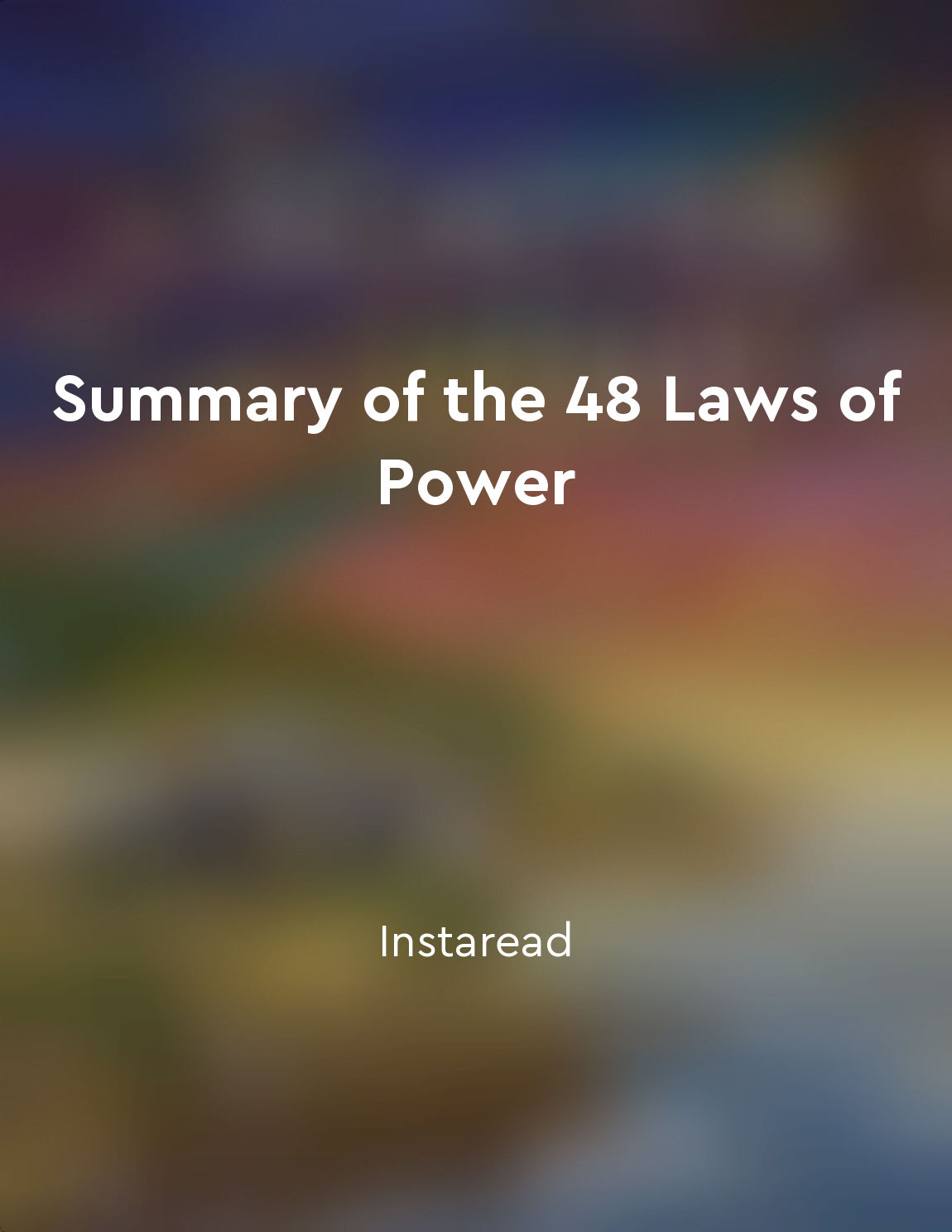Law 27: Play on people’s need to believe to create a cultlike following from "summary" of Summary of the 48 Laws of Power by Instaread
Playing on people’s need to believe is a powerful tool for creating a cult-like following. Cults often appeal to individuals who are searching for something to believe in, whether it be a sense of purpose, belonging, or guidance. By tapping into this need, leaders can manipulate followers into unquestioningly following their commands. Creating a cult-like following involves establishing a strong sense of identity and community among followers. By fostering a sense of exclusivity and superiority, leaders can make their followers feel special and chosen. This sense of belonging can be a powerful motivator for individuals to commit fully to the leader’s cause. To create a cult-like following, leaders must also project an aura of mystique and charisma. By presenting themselves as enigmatic figures with special knowledge or abilities, leaders can inspire awe and admiration in their followers. This mystique can create a sense of reverence and devotion among followers, making them more willing to overlook any doubts or concerns. In order to maintain control over their followers, leaders must also instill a sense of fear and dependency. By cultivating an environment of paranoia and isolation, leaders can make their followers reliant on them for guidance and protection. This fear can be used to manipulate followers into obeying commands without question, ensuring their loyalty and obedience.- Playing on people’s need to believe is a powerful strategy for creating a cult-like following. By tapping into individuals’ desire for purpose and belonging, leaders can manipulate followers into unquestioning loyalty and obedience. By establishing a strong sense of identity, fostering a sense of exclusivity, projecting an aura of mystique, and instilling fear and dependency, leaders can maintain control over their followers and ensure their continued loyalty.
Similar Posts
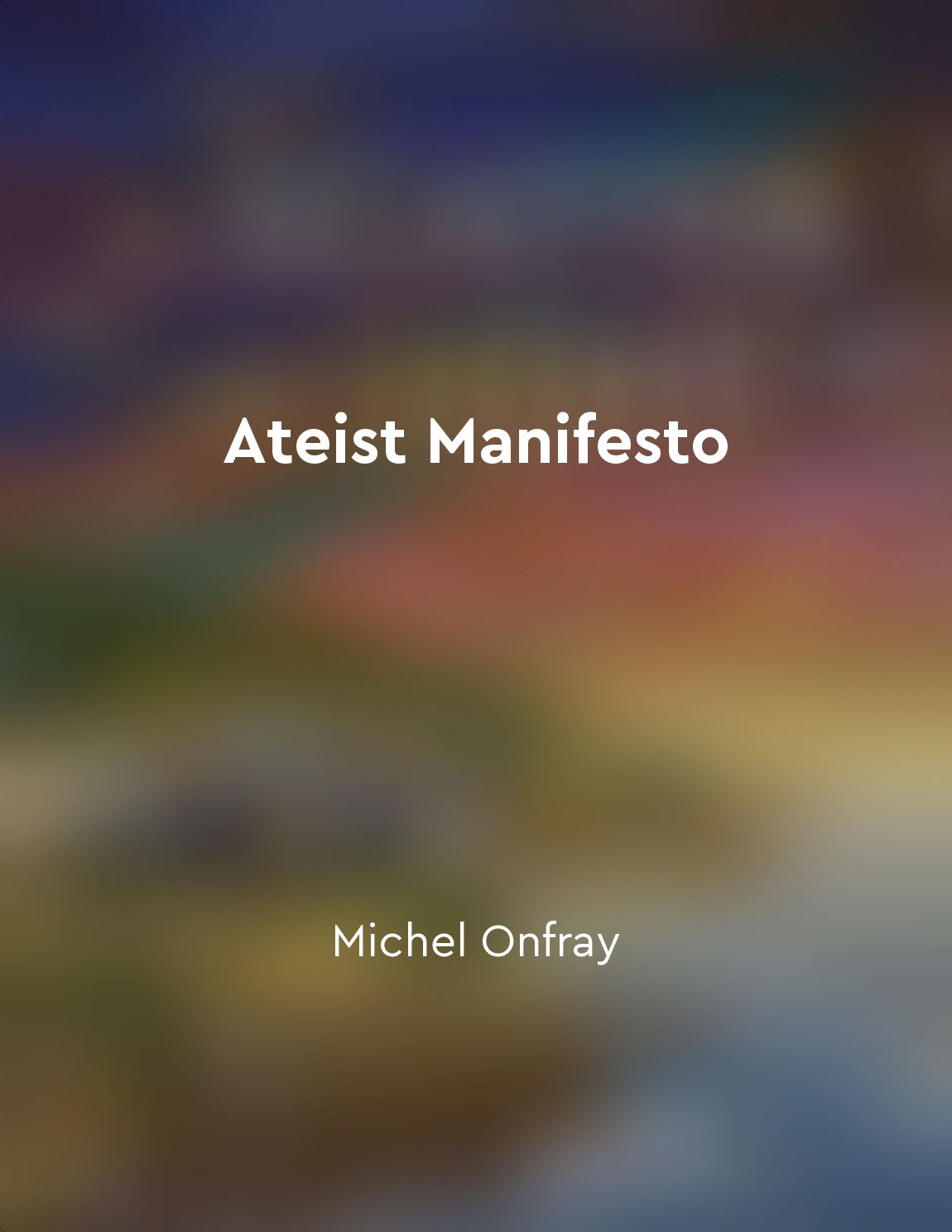
The burden of proof lies with believers, not atheists
Believers in gods must bear the burden of proof. If they believe in a deity, they must provide evidence. It is not the responsi...

The allure of unlimited possibilities beckoned dreamers
The world was full of dreamers who were drawn to the promise of boundless opportunities. They were captivated by the idea that ...
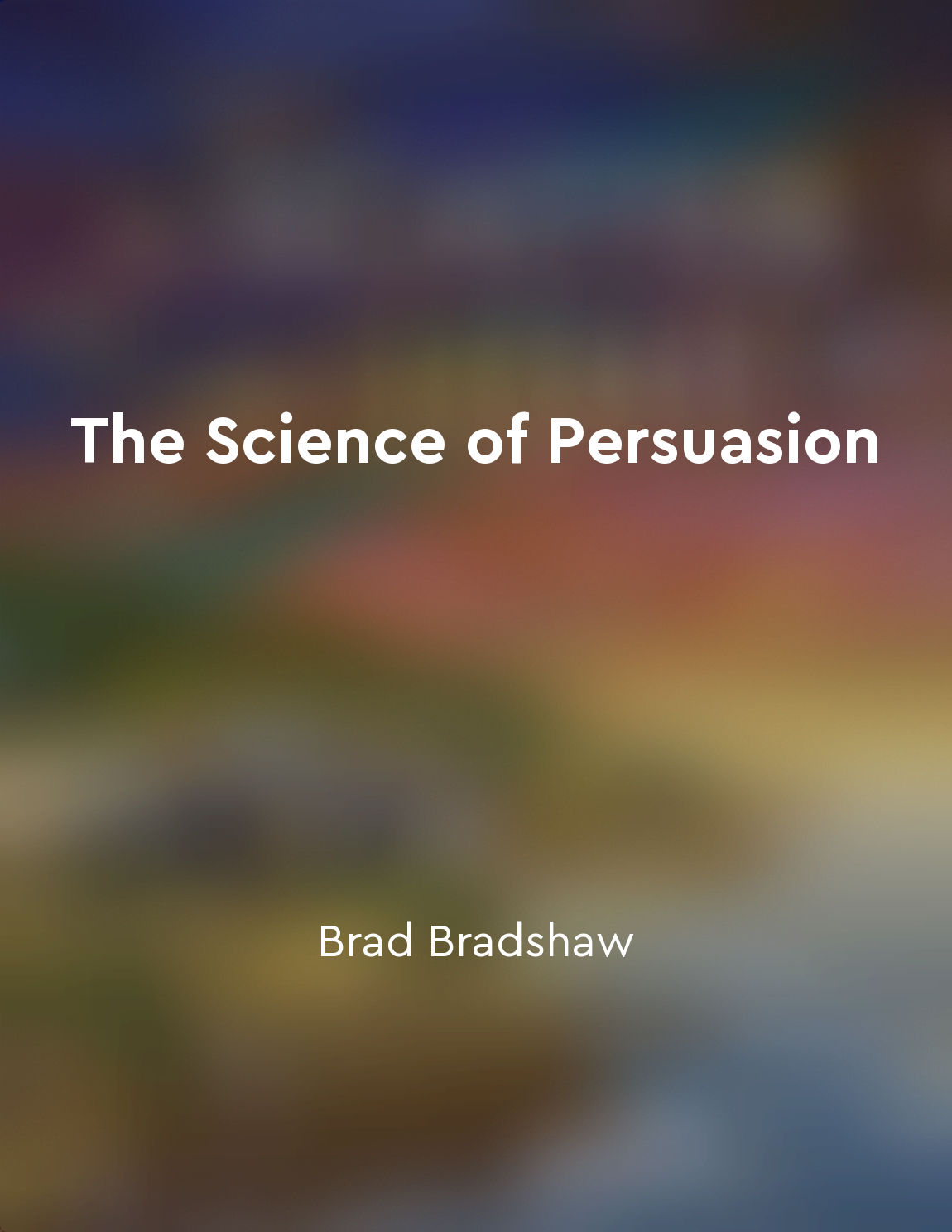
Social proof influences decisionmaking
The idea that social proof plays a significant role in influencing decision-making may seem intuitive, but its impact is profou...
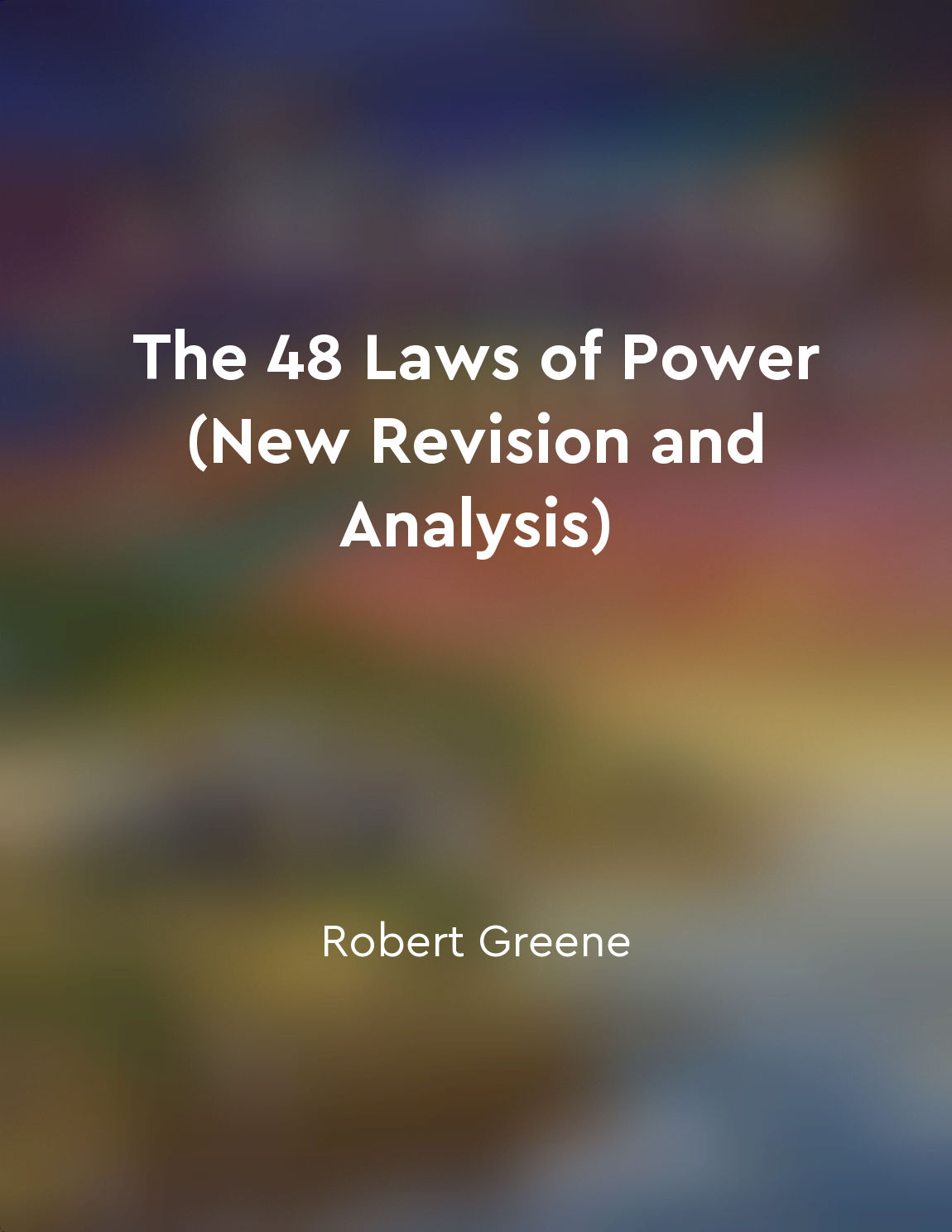
Build alliances carefully
When it comes to forming alliances, one must proceed with caution and meticulousness. The individuals you choose to align yours...

Identifying manipulation tactics is crucial
Understanding manipulation tactics is an essential skill to navigate the treacherous waters of dark psychology. It is crucial t...
Create the illusion of desirability by making others come to you
To make others come to you, you must create the illusion of desirability. This is a powerful strategy because people are natura...
Justice is sacrificed for the greater good of the party
In the pursuit of the party's objectives, justice often becomes a casualty of the greater good. The concept of sacrificing just...

In victory, know when to stop
When you have achieved success, it is crucial to recognize when to put an end to your conquest. As you taste victory, it may be...
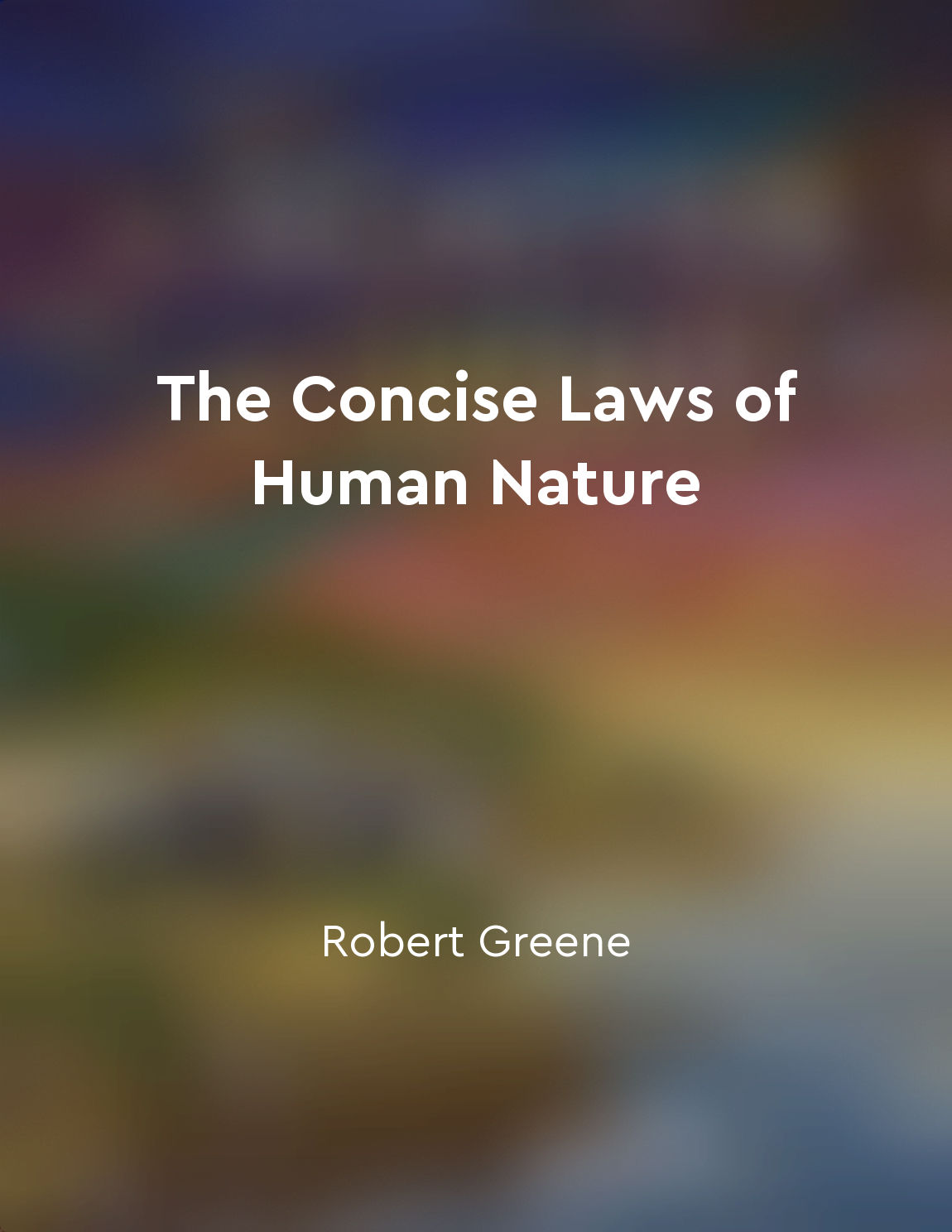
Trust is a fragile but essential component of healthy relationships
Trust is the invisible thread that binds individuals together in healthy relationships. It is delicate and easily broken, yet w...

The balance between life and death is fragile
In the world of the living and the world of the dead, there exists a delicate equilibrium that must be maintained at all costs....


